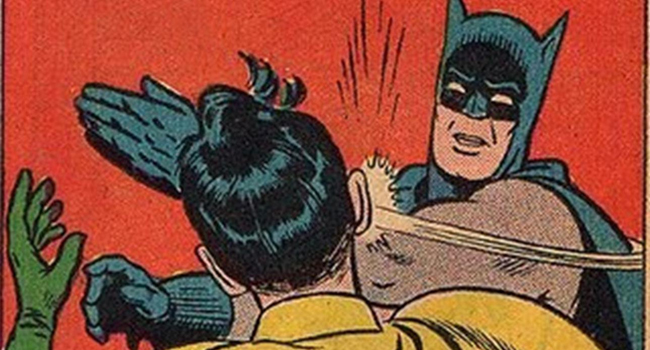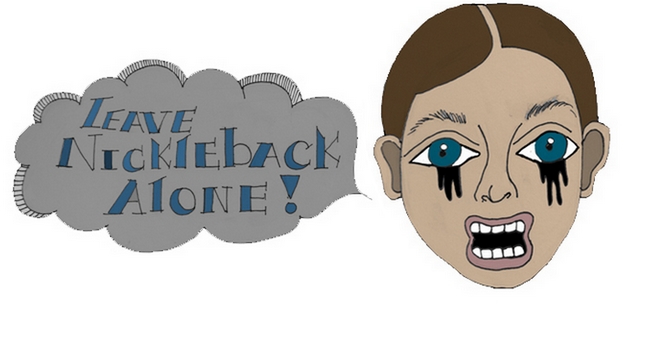Think again and try to recall, because it was an astonishingly historic day: the day the cast of “Glee” surpassed The Beatles for the most hits on the Billboard Hot 100 chart.
It gets worse: since late 2010, “Glee” has crept past mildly significant names like, say, James Brown, Aretha Franklin and the forgettable Elvis Presley.
This means “Glee,” an American television show that follows the successes and defeats of a competitive high school show choir whose songs (among them Toby Keith’s “Red Solo Cup,” Katy Perry’s “Teenage Dream” and Train’s “Hey Soul Sister”), are re-recorded and released with every episode, has become more successful than some of the most legendary names in music history.
Let’s backtrack: in the three-season history of “Glee,” there really have been a few notable musical events. When the show’s composers re-imagined the songs for a newer message, though hit-or-miss, “Glee”’s originality has shined through. Their aforementioned version of “Teenage Dream” featured the show’s dapper blue-blazered rival choir Dalton Academy Warblers for the first time, incorporating a nearly a capella version of the song. It was fresh and unexpectedly charming for a group of all boys, earning a place at No. 1 on the digital charts and peaking at No. 8 on the Hot 100.
The unique part about “Glee” that originally charmed TV lovers and pop culture fanatics was the fantasy-like sequences that the show would project onto its viewers. In certain situations, like when sassy-sweet Mercedes felt overshadowed by the popularity of her boyfriend, it was fun to watch her channel her angst and frustration on stage, alone, backed by a full band to sing “Spotlight” by Jennifer Hudson with all the emotion that her body contained.
People enjoyed this surrealism the show inspires: nobody questioned whether this happened in the character’s head or not, or how she performed with a band with no shown rehearsal time. It was simply the character’s bitterness being relieved as a soliloquy for viewers to indulge in. Yes, adding a new context to an already fulfilling narrative in a song is exciting for people to watch.
But at what point does “Glee” cross the line in manipulating the intentions of its original performers? And is it right for a show to earn a place on the chart nearly every week–amounting to hundreds of hits–with only a small handful of original songs to their name?
But “Glee” didn’t do it like the people below them on the list. The cast didn’t promote, perform live and conceptualize like Ray Charles and Elton John did. Being a decent television show on a popular network at a convenient timeslot isn’t hard to see past. Plus, between six and ten singles are released every week. Of course they did well.
This being the show’s third season, producers of the show may have felt the stress of declining ratings, thus implementing a change in song choice and character motivation to align with more recent radio hits. Since the start of the latest season, the “Glee” cast has traded renditions of classics like “Don’t Stop Believin’” (another digital chart-topper for the show) and Celine Dion’s “Taking Chances” for songs with of a story and more of an appeal.
In the past months of the show, such revolutionary hymns have graced the small screen as “Sexy And I Know It” and “Stereo Hearts,” both along the “just-sing-and-look-pretty” storylines of fluff and equally popular at the time of their airing. There were even two episodes featuring dedications to the late Whitney Houston.
To put it simply, “Glee” sold out hardcore.
Not only does it hurt to know a dumb TV show is so influential, but in some instances, the songs outperform its original version. Last month, Glee’s stripped cover of Florence & The Machine’s “Shake It Out” ranked at No. 71 on the charts. It didn’t just match the efforts of the British indie band. It had the nerve to land a single notch ahead of their No. 72 peak. Now this is crossing the line.
It’s hard to believe that in a few decades, people will look at the charts and see “Glee” among the greats, possibly still reigning with the most charted singles because of a few more seasons of drawn out hooplah before eventually burning out in, say, 2014. But at least we’ll be able to tell our kids that they sounded like Kidz Bop and managed to piss on everybody else’s songs. It’ll be our only defense.



